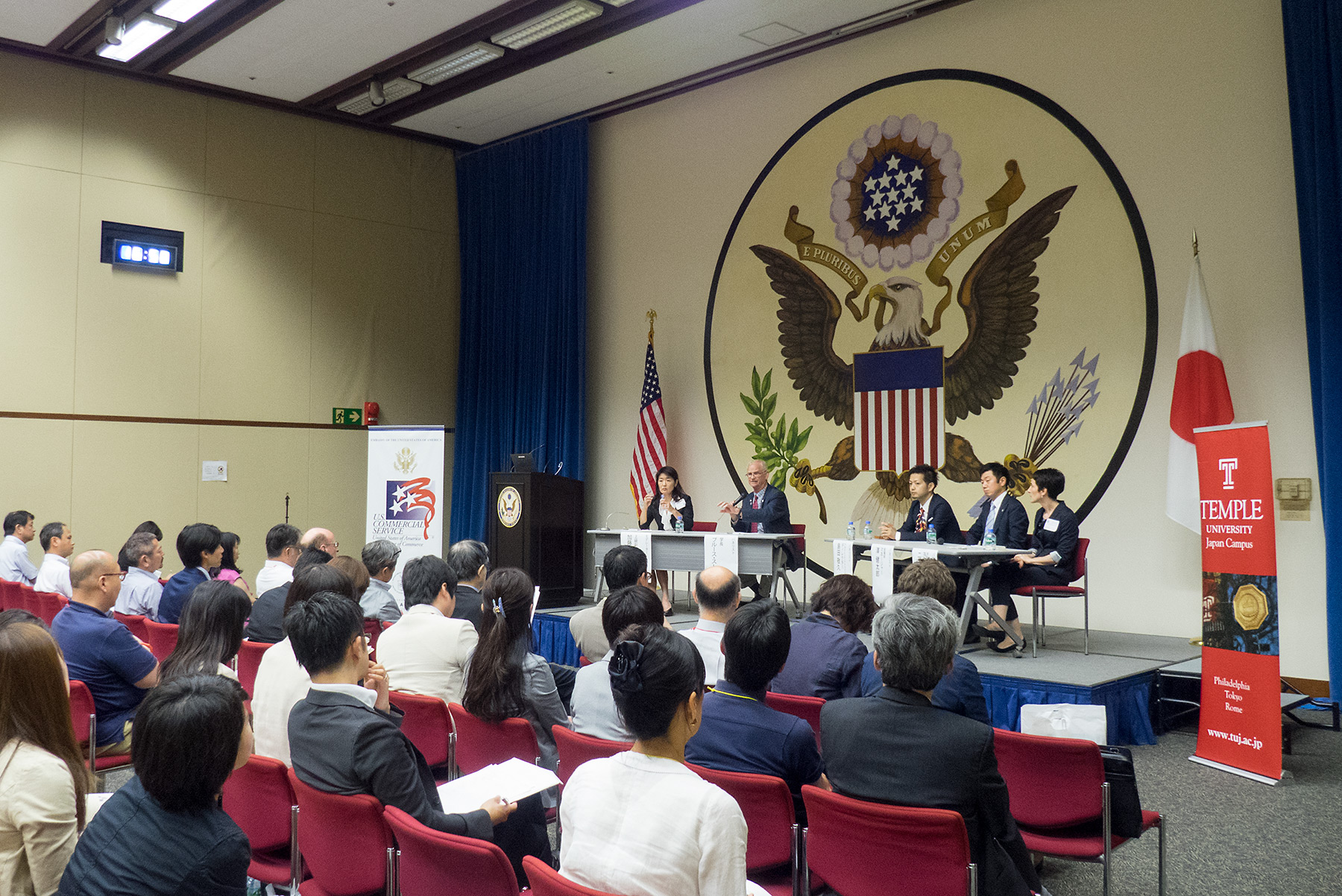Temple University, Japan Campus (TUJ) hosted a symposium “American University Administration and Global Competition” at the U.S. Embassy Tokyo on June 30, with support from the Commercial Service of the U.S. Embassy Tokyo. 80 university administrators, educators, and journalists from throughout Japan attended the event. Margot Carrington, Minister-Counselor, Public Affairs, the U.S. Embassy, opened the event by emphasizing the importance of student exchange between Japan and the U.S. This was followed by an address by Masanobu Morita, Director, the Higher Education Policy Planning Division, Higher Education Bureau, Ministry of Education, Culture, Sports, Science and Technology, who spoke about the significance of fostering global talent in Japan.
TUJ Dean Bruce Stronach proposed and planned this symposium upon seeing the increasing interest in American style university administration by Japanese universities and research institutions. As the only four-year American university in Japan, TUJ has taken a flagship role in educational exchange between Japan and the U.S.
In the first session, Dean Stronach delivered a welcoming address, followed by Senior Associate Dean Chie Kato outlining TUJ’s characteristics as an American university in Japan. Three TUJ staff presented a brief overview of American style university administration in each of their specialized areas and capacities:, Academic Advising Center Director Norihisa Shimada, Career Development Manager Kentaro Sawa, and Office of Student Services Manager Nicole Despres.
During the second session, attendees were divided into three workshops: academic advising, internship programs, and student services. In “American style academic advising,” participants were divided into subgroups to discuss issues involved in implementing academic advising systems in Japan such as GPA, course numbering, and human resources. In the “University-driven Internships” workshop, Sawa and participants discussed the points to remember when building an internship system, as well as the challenges at each stage of program development. Issues in building relationships among host companies, professors and students were also raised and discussed. In “Student services supporting foreign students,” examples at TUJ were first presented on three topics the participants were most interested in according to pre-event surveys: (1) to what extent a university should support students, (2) nurturing cultural understanding, and (3) hostering international exchange.
In the closing session, Dean Stronach emphasized the importance of lateral communication among departments and among faculty and staff in supporting students, pointing out a key concept “staff + faculty = university” showing that they are equally important for a university. After Dean Stronach’s closing address, volunteers from each breakout session presented a summary report. In the following question and answer session, issues related to practical applications were discussed including transfer of authority, how to deal with “exceptions,” and professionalism and staff development. Answering a question on differences between Japanese and American universities, Dean Stronach recommended that “given the differences between Japanese and American culture and society it is impossible to import wholesale American university administrative practices. Rather, it is better to pick and choose those practices that are most applicable to each individual Japanese university’s needs.”
Respondents to a feedback survey suggested continued discussion and information sharing among universities and institutions for the further development of higher education in Japan. Among the positive feedback received, respondents wrote “it was good to be able to share concerns and issues with people from other universities (through group sessions, etc.),” and “it would have been even better if we had more time.”
The slide materials used on the day and the overview of the symposium are available below (in Japanese).

